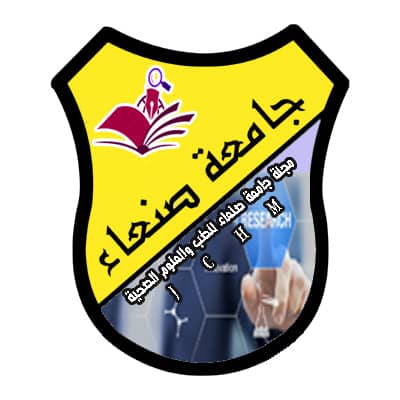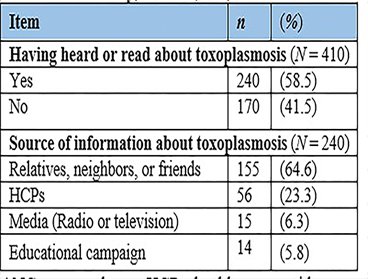Knowledge, attitudes and practices towards toxoplasmosis among pregnant women receiving antenatal care in Sana'a city, Yemen
محتوى المقالة الرئيسي
الملخص
Background and Aims: There is a lack of studies on pregnant women’s knowledge, attitudes, and practices (KAPs) towards toxoplasmosis in Yemen. Therefore, this study assessed these KAPs among pregnant women receiving antenatal care in Sana’a city, Yemen.
Subjects and Methods: A KAP survey was conducted among 410 pregnant women in Sana’a using a structured questionnaire. The association between women’s characteristics and their KAPs was then studied.
Results: Of 410 women, 58.5% had heard of toxoplasmosis. Of these, 53.3% had good knowledge and 73.3% had positive attitudes towards it. Women with no previous miscarriage or premature birth had significantly higher levels of poor knowledge (OR = 4.1, 95% CI: 2.39–7.10; p <0.001 and OR = 2.9, 95% CI: 1.61–5.05; p <0.001, respectively) and negative attitudes (OR = 5.6, 95% CI: 23.00–10.57; p <0.001 and OR = 2.7, 95% CI: 1.36–5.48; p = 0.004, respectively) than their counterparts. Negative attitudes were significantly higher in primigravida than multigravida women (OR = 2.1, 95% CI: 1.17–3.79; p = 0.012), but significantly lower among women in the first (OR = 0.3, 95% CI: 0.20–0.56; p <0.001) or second trimester (OR = 0.2, 95% CI: 0.10–0.48; p <0.001) than their counterparts. Acceptable practices were reported by 95.4% of women, with no association with demographic or obstetric characteristics.
Conclusion: There is a need for educational interventions for pregnant women in Sana’a about toxoplasmosis to prevent its potential adverse events in their fetuses.
التنزيلات
تفاصيل المقالة

هذا العمل مرخص بموجب Creative Commons Attribution-NonCommercial-NoDerivatives 4.0 International License.

